The WW1 piper who marched through gas, bullets and bombs to save his regiment
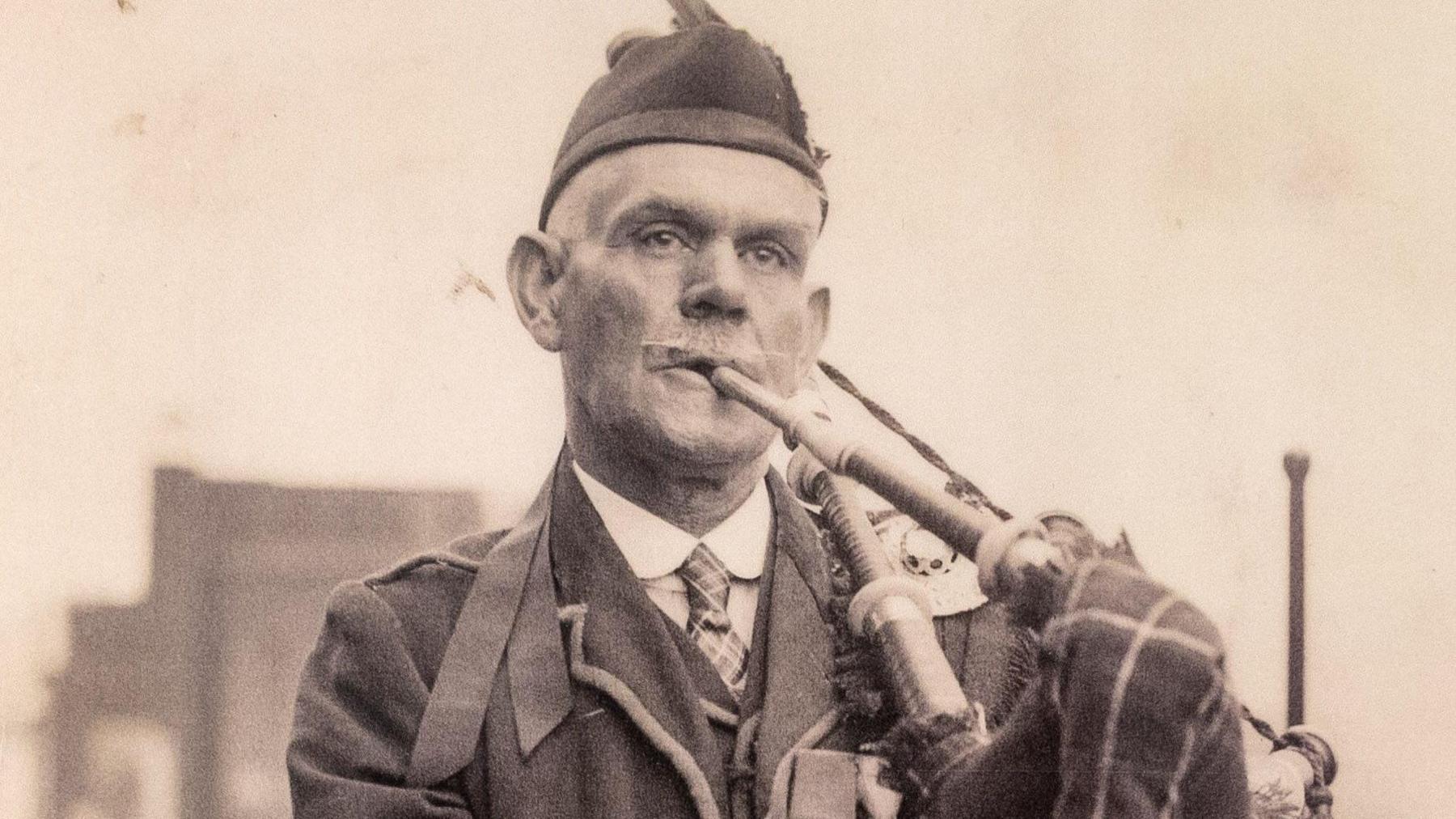
Piper Daniel Laidlaw exhibited great courage and bravery in leading his regiment into battle
- Published
There were many acts of courage in World War One but few could match that of piper Daniel Laidlaw.
Armed with just a set of bagpipes, the Scotsman played his way into danger when his regiment was in chaos and panic.
His quick-thinking rallied the troops of the Kings Own Scottish Borderers at the Battle of Loos in France.
And his bravery was rewarded with the highest military honour in battle - the Victoria Cross (VC). But now there are calls for him to be honoured with his own statue.
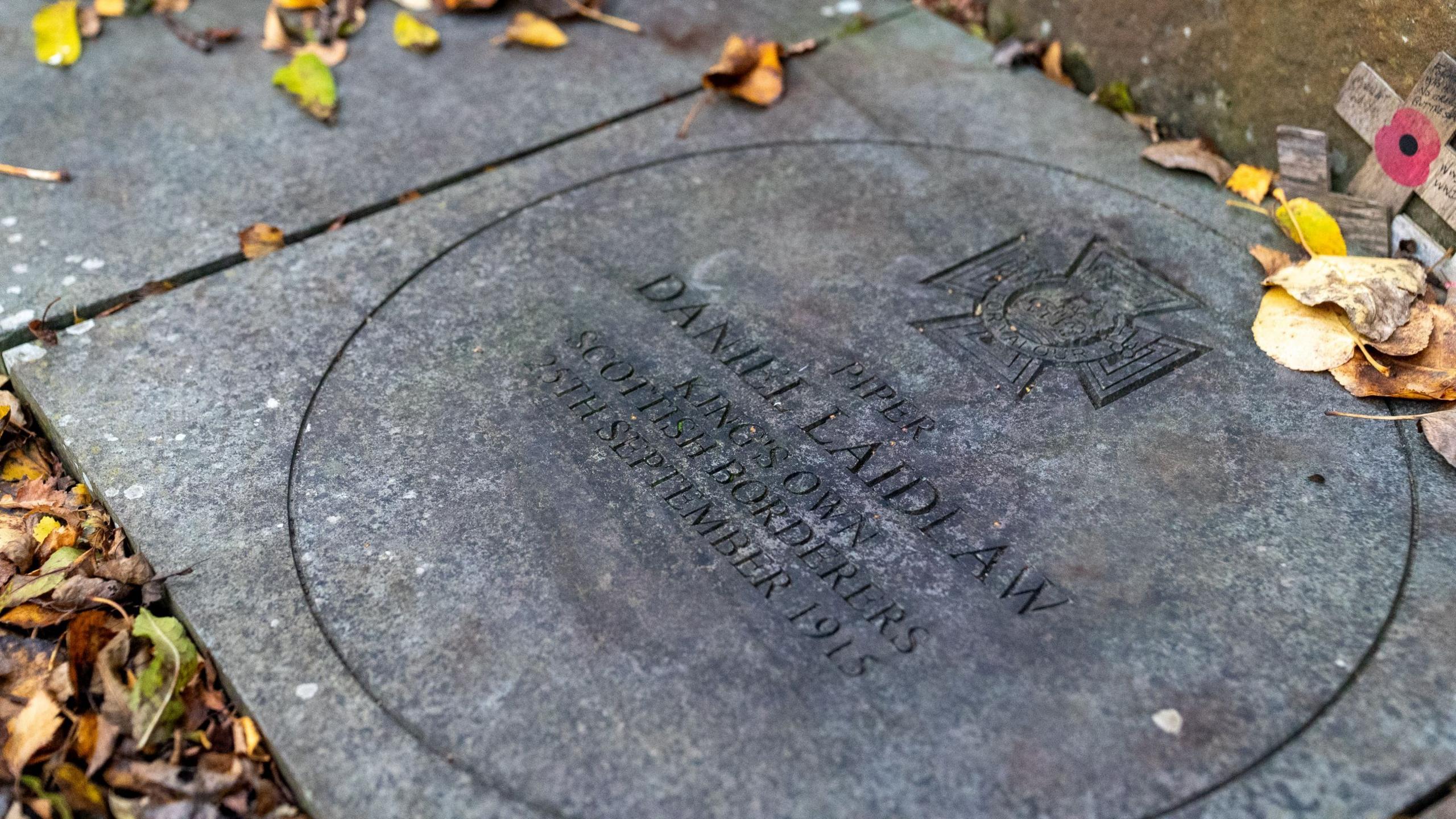
A plaque commemorates Laidlaw's VC but campaigners want a statue
The year was 1915 and Laidlaw's frontline unit was trapped in No Man's Land.
Poison gas had drifted into the trench and bullets from German machine guns flew overhead.
In an incredible moment of valour, within the chaos and madness, Laidlaw tore off his own gas mask, climbed up on the parapet and started playing the pipes.
As the notes of the regimental march Blue Bonnets Over the Border played out, the soldiers rallied and pushed on with the attack against the enemy.
Laidlaw only stopped playing when he was wounded for the second time.
Ultimately, the attack failed, but Laidlaw was awarded the VC for his efforts. Only three pipers have ever been given the honour.
'Coolness and disregard for danger'
The citation for Laidlaw's award appeared in the London Gazette on 18 November, 1915.
It said: "For most conspicuous bravery prior to an assault on German trenches near Loos and Hill 70 on 25th September 1915.
"When the attack was about to commence, Piper Laidlaw, seeing that his company was somewhat shaken from the effects of gas, with absolute coolness and disregard of danger, mounted the parapet, marched up and down and played the company out of the trench.
"The effect of his splendid example was immediate, and the company dashed out to the assault."
An estimated 30,000 Scots from 45 battalions fought at the Battle of Loos and about 7,000 were killed.
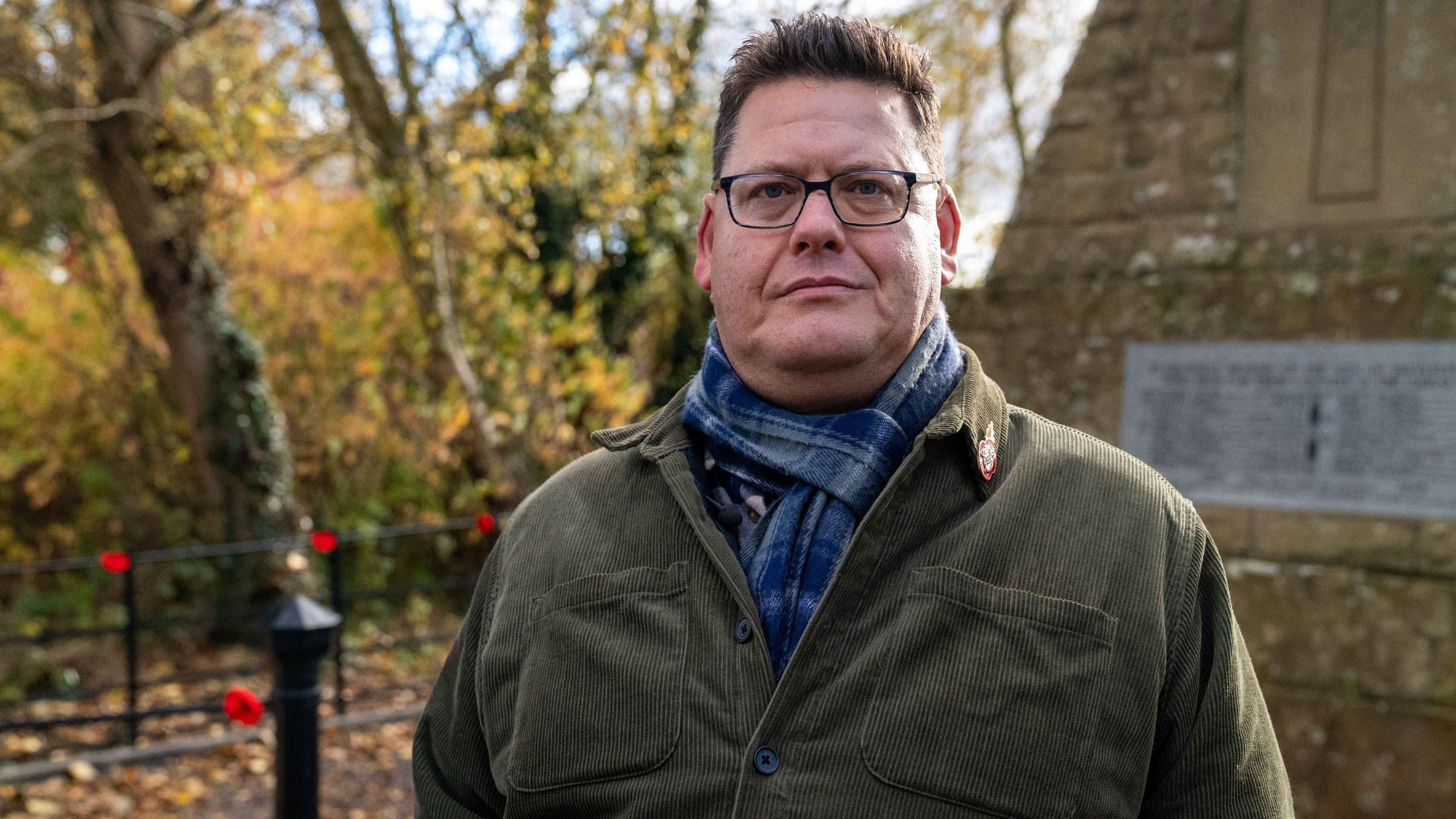
Kevin Laidlaw, the great-grandson of Piper Laidlaw, has joined a campaign to see his ancestor honoured with a statue
Piper Laidlaw was born at Little Swinton in Berwickshire in 1875 and had been in the Army throughout his 20s and 30s, serving in India.
When World War One broke out he re-enlisted in The King's Own Scottish Borderers.
At the foot of the village's war memorial there is a commemorative plaque in his memory - something that was done across the country for all winners of the VC.
Now there is a growing call for something more to remember the brave piper.
His great grandson has joined a campaign to erect a stature in Laidlaw's honour in his hometown and to create a lasting piping legacy in his name.
Kevin Laidlaw grew up hearing tales of his decorated great grandfather.
"It's great to know there's a lot of people out there that Piper Laidlaw means something to. Obviously I grew up with the story and it's quite personal to me," he said.
He grew up seeing his great-grandfather's medals and eventually developed the thirst for more knowledge.
"As a teenager I realised what a Victoria Cross actually is and I read up much more about it and asked my dad about it and you realise he was a bit of a hero.
"All the family is very proud of him indeed, its a unique story."
He added: "I think it would be great to see him remembered and I think it's also an insight into Piper Laidlaw and why he was there."
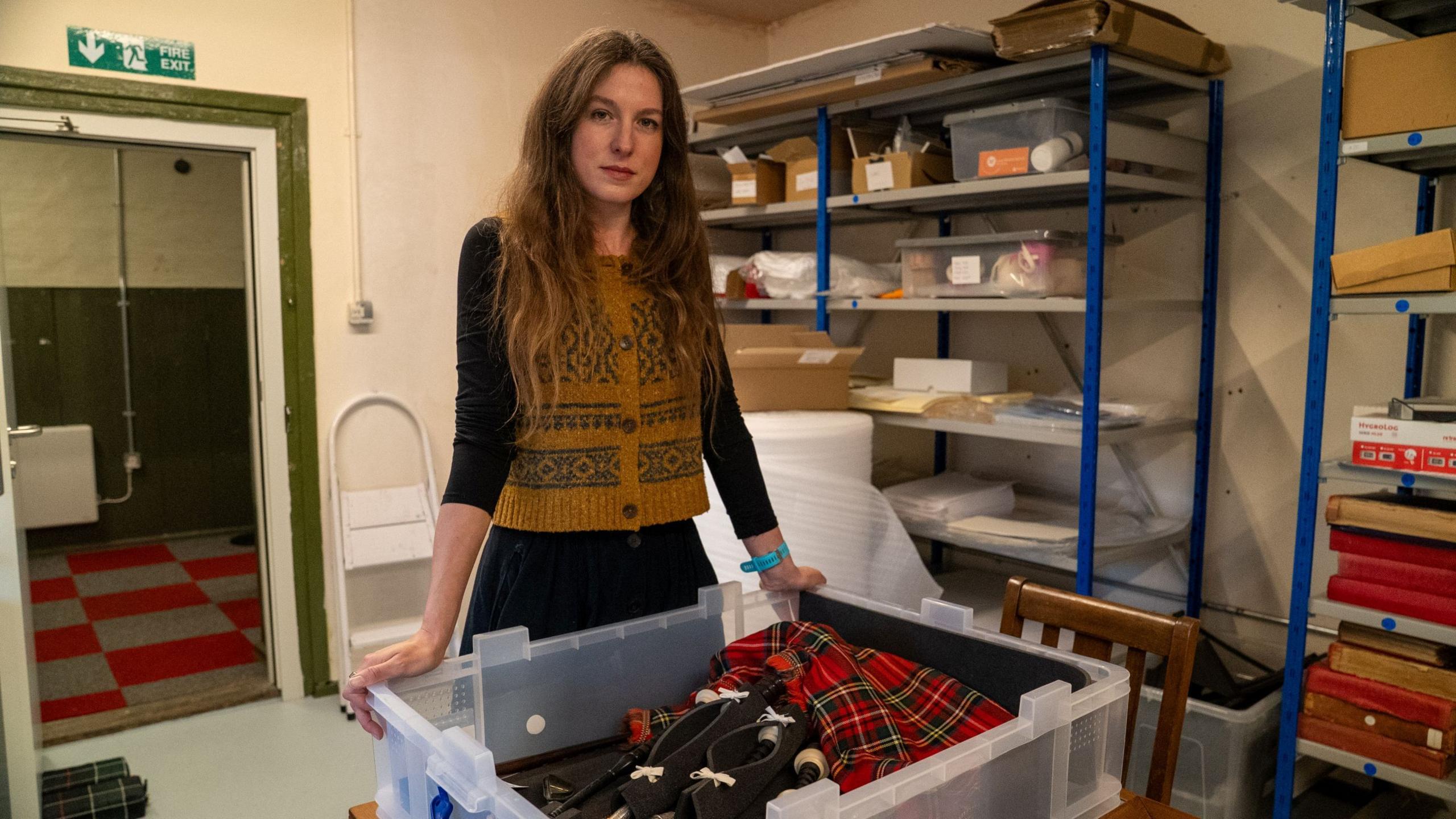
Curator Susan Higgins with Daniel Laidlaw's bagpipes
Laidlaw's medals are on display at the National Museum in Edinburgh.
His bagpipes are at the King's Own Scottish Borderers regimental museum in Berwick.
Susan Higgins is the curator there and she backs the celebration of his bravery.
She said: "At that time when there was chaos, gas, bombardment all around and people were panicking and feeling lost, they didn't know what to do.
"It was just so wonderful that he chose that tune that he knew people really identified with to calm them and rally them."
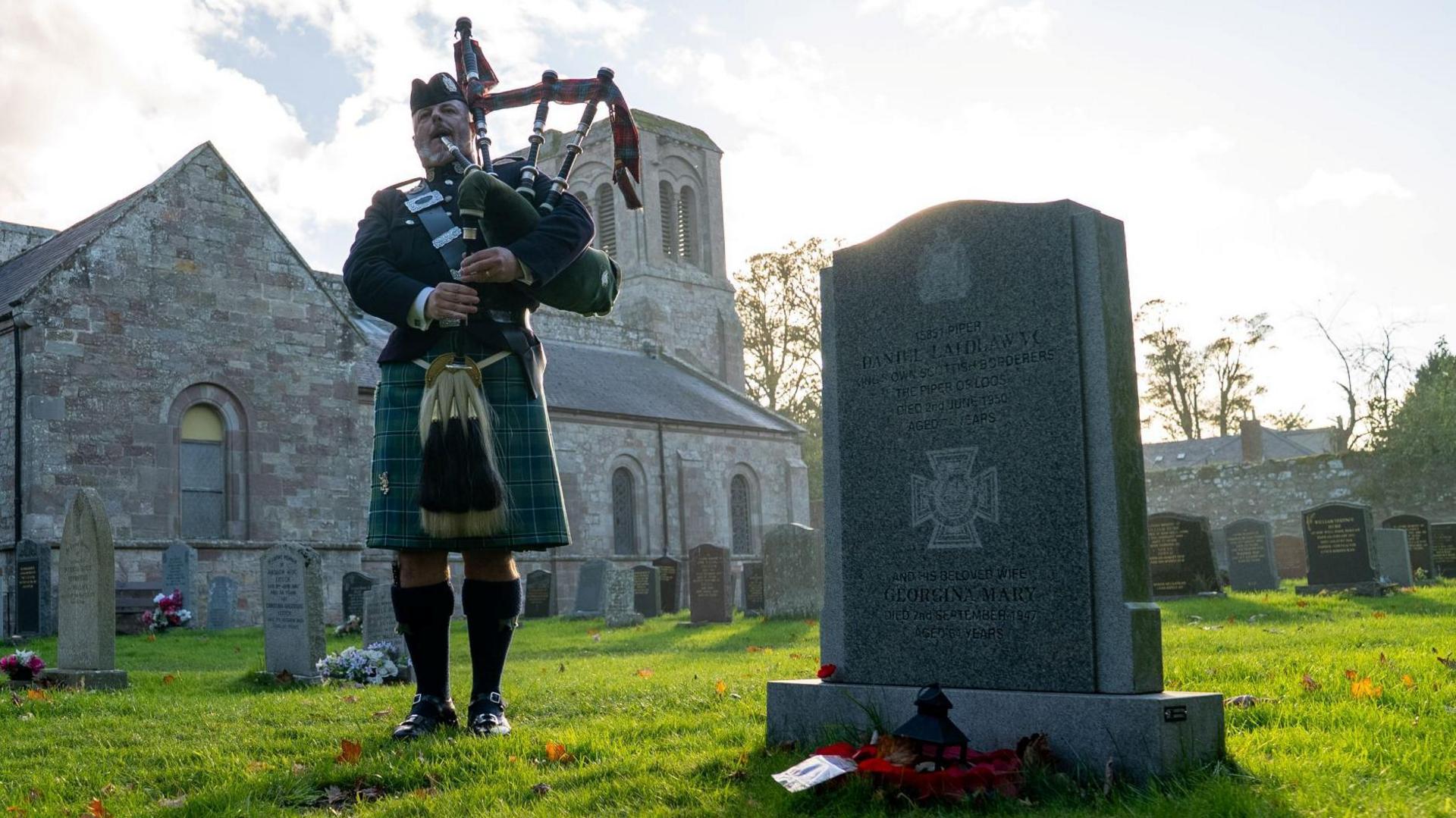
Piper Kevin McLean in the churchyard in Norham, where Piper Laidlaw was laid to rest
After the war, Daniel Laidlaw struggled to deal with the fame and celebrity that came with his Victoria Cross.
For many years he struggled to find work and could not settle down.
Eventually he moved to Norham in Northumberland, just across the Scotland-England border.
He worked as a sub-postmaster and died in 1950, at the age of 75.
As well as a memorial, there are also plans for a scholarship in Laidlaw's name to encourage the next generation of pipers.
Piper Kevin McLean said: "I think the whole story of Laidlaw is so inspiring. If that gets one kid into playing pipes, I've done a great job."
Pipers are no longer allowed to lead men into battle. Daniel Laidlaw was one of the few to survive.
And people who remember his amazing feat are determined to make sure he is remembered.
Related topics
- Published21 September 2015
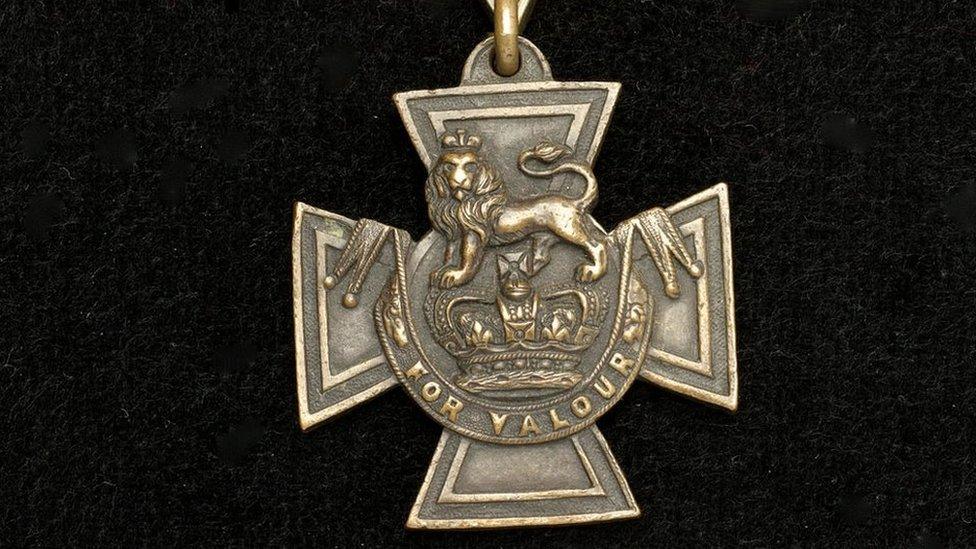
- Published9 November 2014